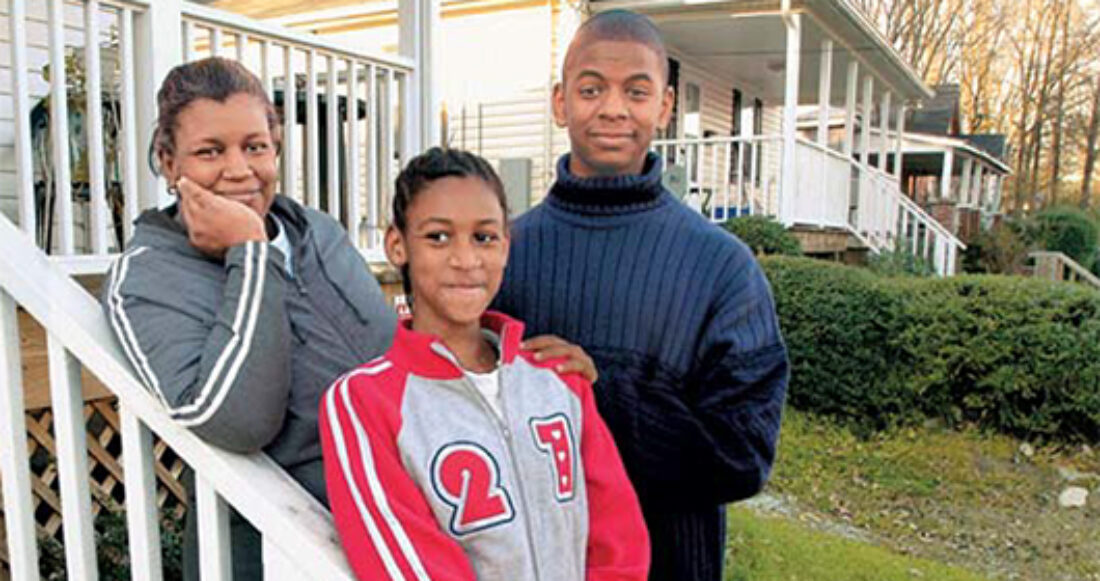Reflecting on Casey's 2003 Report on the High Cost of Being Poor

A recent news segment on the boom in predatory automobile financing practices targeted at low-income consumers carried the tagline, “the high cost of being poor.”
A dozen years ago, the Casey Foundation popularized that phrase in an essay that was part of the 2003 KIDS COUNT Data Book. “The High Cost of Being Poor: Another Perspective on Helping Low-Income Families Get By and Get Ahead” documented the inflated charges people in poor communities pay for everything from groceries to check cashing. It also described how predatory subprime mortgage lending was putting working poor families at risk of financial ruin.
“Overall, the amount of money lost to low-income families and to communities themselves as a result of income-stripping financial services and predatory practices is enormous,” stated the essay.
Before Casey’s 2003 report, no one had categorized all these issues as part of the same systemic problem or called it “the high cost of being poor.”
“That catch phrase, and the hard data in the report, ignited a new conversation,” notes Bonnie Howard, director of national partnerships at the Foundation. “It had ‘wow’ power.”
“Today, there is an entire field devoted to financial stability and how to provide low-cost financial services to those who would otherwise use rent-to-own, pawnshops, payday lending, and other high-priced services,” notes Beadsie Woo, a senior associate in Casey’s Center for Community and Economic Opportunity.
The 2008 mortgage foreclosure crisis prompted new safeguards for consumers, including the Credit Card Accountability Responsibility and Disclosure Act of 2009, the Dodd-Frank Wall Street Reform and Consumer Protection Act of 2010, and the Consumer Financial Protection Bureau (CFPB).
“Casey’s support enabled us to lay the groundwork and build the capacity to act when the timing was right,” notes Chi Chi Wu, a staff attorney with the National Consumer Law Center.
With Casey support, the National Conference of State Legislatures (NCSL) has held an annual meeting on opportunities for working families since 2002. Sessions on the high cost of being poor “inspired legislators to look at how policies could be strengthened,” says Mary Fairchild, a senior fellow at NCSL.
For example, Pennsylvania Representative Dwight Evans led a statewide effort to launch the Fresh Food Financing Initiative, which has improved access to fresh foods for more than half a million people and generated some 5,000 jobs. The effort helped inspire the Healthy Food Financing Initiative, a federal partnership that helps finance grocery stores, small retailers and farmers’ markets selling healthy food in underserved areas.
While car purchasing is still one of the least regulated markets, the CFPB has established some limits on markups, and a coalition called Working Cars for Working Families helps connect low-wage workers to low-interest loans and matched savings for cars.
Casey has helped support low-cost financial services and banking options, free or low-cost tax preparation by trained volunteers, and help in ensuring families claim tax credits for which they qualify. The Foundation also invests in financial coaching to help families overcome obstacles in meeting their financial goals; mechanisms to help low-income taxpayers direct some of their refunds toward savings; and efforts to reduce high fees paid by immigrants to send money back home to their families.
“Casey has been at the forefront of understanding that high quality financial services are relevant to family well-being,” notes Rachel Schneider, senior vice president of the Center for Financial Services Innovation.





